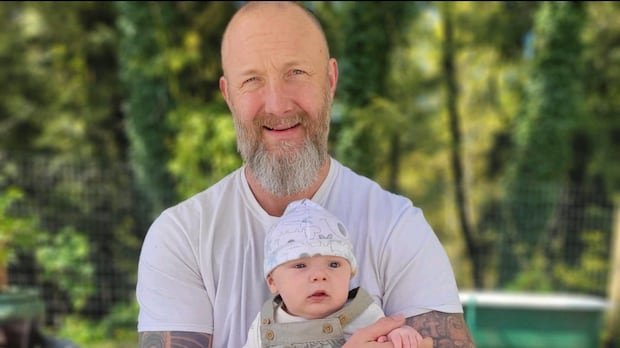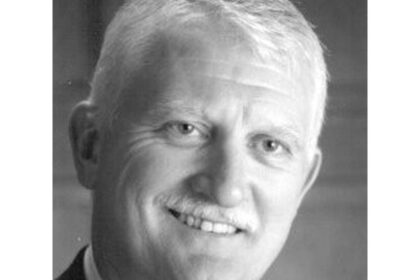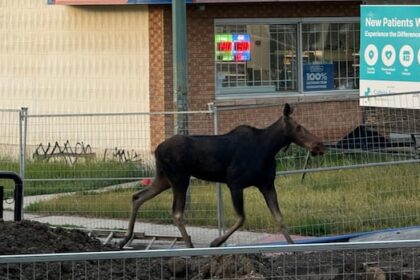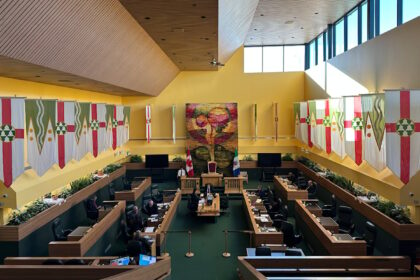British ColumbiaMore than 15 years after deciding he was done with crime, Derek Krause is applying for a federal pardon. It’s a step toward freedom for many people after prison, but one that will become more difficult to get when federal funding ends next year. Advocates say those with criminal records face discrimination when finding work, housing and educationWilliam Burr · CBC News · Posted: Nov 08, 2025 9:00 AM EST | Last Updated: 6 hours agoListen to this articleEstimated 6 minutesThe audio version of this article is generated by text-to-speech, a technology based on artificial intelligence.Derek Krause, seen with his son and wife, is in the process of applying for a criminal record suspension. (Submitted by Derek Krause)Derek Krause was in jail in 2009 when he decided he was done with crime. Today, Krause, 49, lives in Duncan, B.C., with his wife and 11 month-old son, where he works full time as a truck driver delivering milk. “And I said to the judge, ‘Hey, listen, I can’t be here anymore. I can’t do this revolving door anymore. I’m sick and tired of being tired and sick,'” he said. He hasn’t committed another infraction since. Now, Krause is applying for a record suspension with the support of the 7th Step Society of Canada, which helps ex-offenders navigate the paperwork and costs of the process.But that aid may soon no longer be available, with federal funding put in place for organizations that help people obtain a pardon set to dry up at the end of March.The organizations say the cut would be a massive hit to the work they do. Krause says the process of applying for a criminal record suspension would have been difficult to navigate without the help of the 7th Step Society. (Submitted by Derek Krause)“We built our program from scratch to be serving over 200 people at any given time,” said Dilpreet Thiara, case manager at the John Howard Society of B.C. People with criminal records are often subject to discrimination that prevents them from finding work, housing or education, according to these organizations. A pardon or record suspension, granted to people who have a clean record for a set number of years, means people’s past offences won’t show up to potential employers or landlords during criminal record checks. End of fundingBeginning in 2022, the Trudeau government provided $22.2 million to 18 non-profit organizations across the country to support people making pardon applications and to get the word out that support services exist. That funding, laid out in the 2021 federal budget, is scheduled to end next year. When asked by CBC News about the possibility of it being renewed, Public Safety Canada wouldn’t answer directly. But it said the government is committed to ensuring that the record suspension program is fair and accessible and that it allows individuals who have demonstrated that they are law-abiding citizens to become full members of society — which includes exploring programming and funding opportunities.The government’s 2025 budget, released on Tuesday, makes no direct mention of the record suspension program or funding for it. Mark Medgyesi, executive director of the John Howard Society of B.C., said the future of the society’s pardons program is now “up in the air,” despite “strong and growing demand for the service.” Laura Day, a program supervisor at the Elizabeth Fry Society of Greater Vancouver, said they still plan to offer people support for the pardons process, but that when the federal funding ends they’ll have limited capacity to cover the costs associated. She said the price of completing an application and obtaining necessary documents generally ranges between $250 and $500 from start to finish.The price of just submitting an application, if someone does it on their own, was lowered by the federal government in 2022 from approximately $650 to $50.“For some people, $630 might as well be $6.3 million,” said Mehmed Duska, a case manager at 7th Step who helped Krause with his application. “Some of my clients are living in shelters because they can’t even afford subsidized housing.”Statistics from the Parole Board of Canada show an increase in pardons and record suspensions since the additional funding began in 2022.According to the Parole Board of Canada, more than 596,000 Canadians have received pardons and record suspensions since 1970, 95 per cent of which remain in effect. This indicates, the board says, “that the vast majority of record suspension recipients do not commit offences in the community.”Chrystal Lattie, with the Elizabeth Fry Society of Greater Vancouver, said their organization sees a lot of single mothers with children who are looking to move forward to a brighter future. Lattie recalls a frantic phone call from a woman who was in the midst of being hired for a job, who had a criminal record from many years in the past. “She had already done her interview. They had asked for references, but then they asked for the records check. So she called and was in quite a panic saying, ‘This is a job, I’ve gone to school for it. This is something I’ve really wanted to do for a long time.’” Among those seeking a record suspension are people convicted of possessing a small amount of cannabis, which is no longer considered a crime in Canada, Lattie said.Starting over”Without Mehmed, it would have been an absolute nightmare,” said Krause, describing the complexity of the record suspension process he is undertaking. Between 1994 and 2009, Krause was in and out of jail for a string of offences related to car and property theft in several Alberta communities.But after his release from prison in 2009, he was able to turn his life around, largely thanks to the support of the group Narcotics Anonymous, he says. “I made Narcotics Anonymous my life.”Krause says he’s mind blown by the life he has now, including being with his wife, Sophia Minette-Crow. (Submitted by Derek Krause)Krause marvels at the life he leads today, remembering the times when the only trees he saw were through a jail window. “Now as I look around my yard, the things I’ve obtained and the beautiful partner that I have and the little baby boy and the little mildly ridiculous French bulldog that we have, this crazy cat and just this wholesome life — it’s mind blowing.”Krause is eager to clear his record so he’s able to travel to the United States again.“I’ve never been allowed there because of the choices I made in my life. But now I’m making these other choices and I’m doing well.” If his record suspension is successful, the ability to travel will also have a symbolic weight. “When I actually am able to drive through that border crossing, it’s kind of like finishing that sentence in prison. That big metal gate opens up and I walk out into freedom, right?”ABOUT THE AUTHORWilliam Burr is a Radio-Canada reporter in Vancouver who likes to do human interest stories. You can reach him at william.burr@radio-canada.ca
He rebuilt his life after prison, but pardon funding for people like Derek Krause ends soon











